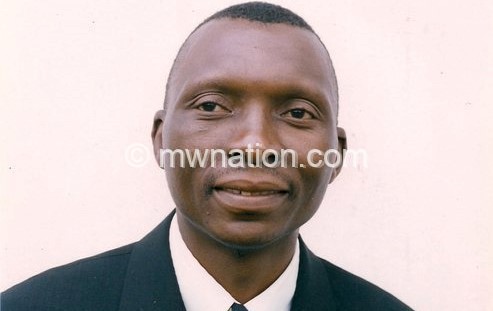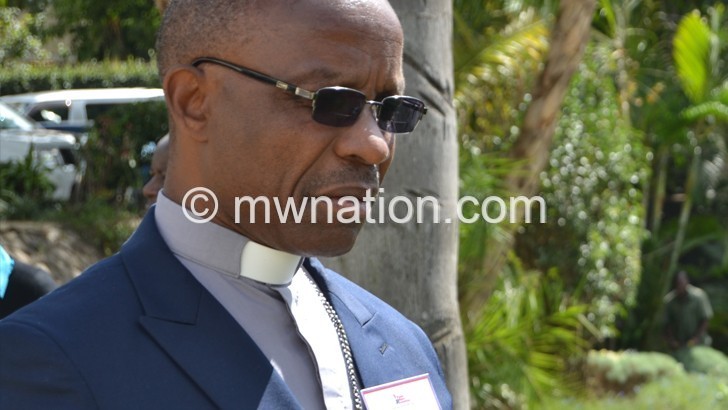Snubbed bill haunts parties
Malawi Law Commission gave clear reasons for recommending the 50 percent +1 system of electing a President and it now appears certain that the failure to adopt it will haunt political parties after the May 21 elections with the winner set to have an even smaller mandate to govern.
The commission recommended the adoption of the 50+1 system of electing a president to give the winner mandate to rule the country with support from a majority of voters.

Thoughts of some political parties and analysts on the Tripartite Elections point to a stiff moment for the winner as well as his party to acquire the mandate equal to or above that of 2014 when incumbent President Peter Mutharika won with a meager 36 percent.
This, according to University of Malawi political scientist Ernest Thindwa, is because of the emergence of UTM—a breakaway party from the Democratic Progressive Party (DPP)—to increase the number of major contesting political parties for the presidential and parliamentary seats.
Thindwa observed that failure to adopt the 50+1 system was a lost opportunity because its passage would have consolidated the country’s democracy.

“If you have a president who has been rejected by about 65 percent of the voting numbers, certainly that is a narrow mandate and it defeats the whole purpose of democracy and that is not healthy for our democracy,” he said.
In 2014, the battle was between the DPP, Malawi Congress Party (MCP), People’s Party (PP) and the United Democratic Front (UDF), which got 52, 49, 26 and 14 members of Parliament (MPs), respectively. Independent members of Parliament won 52 seats.
Since the number of opposition MPs outnumbered those of the winning party, DPP negotiated with UDF for a working coalition, to boost its numerical strength. In addition, several independent MPs joined the DPP.

But the coming into the fray of UTM has increased the political fragmentation and made the competition for seats in Parliament even stiffer.
With this scenario, there is a high probability that the winning president will have a narrow margin, according to Thindwa.
He made these observations on Wednesday before PP president Joyce Banda announced her withdrawal from the presidential race and that her party would endorse the MCP candidate Lazarus Chakwera.

On Friday, Thindwa maintained that the alliance would not give the winning president a wide margin of victory.
“In my view, the alliance will boost MCP’s chances of winning the elections because a significant number of votes, though not all votes that should have gone to PP will certainly now go to MCP. That notwithstanding, the margin of victory will still be narrow because potentially, we still have three parties [DPP, MCP and UTM] and UDF can play a spoiler’s role,” said Thindwa.
UDF publicity secretary Ken Ndanga said although PP has endorsed the MCP candidate, his party would contest the elections alone because it is not discussing an alliance with any party.
“We will proceed as planned. We have a very strong alliance with the people of Malawi and that is where our game plan is. We will work directly with Malawians,” he said.
UTM publicity secretary Joseph
MCP publicity secretary Maurice Munthali observed that his party supported the enactment of the 50 + 1 system because they did not want Malawians to be ruled by a government that does not represent the majority of the people.
But Thindwa disagreed with Munthali’s assertion, arguing that the 50+1 percent system was defeated in Parliament because MCP and DPP were “both blatantly not interested in changing the laws”.
In 2017, the Malawi Law Commission backed the introduction of 50 percent +1 system while maintaining the First-Past-The-Post (FPTP) system to consolidate acceptability and legitimacy of the elected Head of State.
In its report on the Review of the Electoral Laws to the Minister of Justice and Constitutional Affairs, the commission also recommended amendment of Sections 62 (1) and 80 (2) of the Constitution to increase the number of women in Parliament to reflect changes in the President’s election.
Reads the report in part: “The commission, therefore, agreed that the 50 percent +1 system, with the possibility of a second round where the first-round fails to produce a candidate that meets the required threshold would, in the circumstances, be the ideal option.”
The Bill was defeated in Parliament even after opposition political parties represented in Parliament put out a mutual stance on its passing and ultimate implementation during this year’s elections.
The parties’ leaders said they were all geared up to support the Bill and pass it so that the country shifts to the new electoral system.
In the past five presidential elections since the adoption of multiparty democracy through the 1993 national referendum, only in two elections has the winner amassed more than 50 percent of the votes cast.
This was in 1999, when Bakili Muluzi won 52.34 percent and in 2009 when Bingu wa Mutharika got an unprecedented 66.17 percent coming from a meagre 35.97 percent during his earlier bid in 2004.
But with the current political polarisation, how will the winning political party forget the rivalry and draft in an opposition party or parties after May 21 elections to beef up its numbers in Parliament?
Is there a likelihood of a post-election coalition for the three front runners—DPP, MCP and UTM—to work together in government?
PP and UDF directors of publicity Ackson Kalaile Banda and Ndanga, UTM secretary general Patricia Kaliati and MCP’s Munthali all agree that the 2019 elections will be tight, with parties sharing MPs as such they could not rule out the possibility of working together.
“When you win with a minority, you certainly need other political parties to support you, especially in ensuring that some crucial bills are passed in Parliament. So, you forget the rivalry and whatever happens during campaign or previously and forge ahead to start a fresh life,” observed Banda.
But on its part, MCP said it would not form a government of national unity just for the sake of it as it would ensure that they share the same goals and visions with any party they negotiate with.
“It is not the number that matters but the values and MCP will have to weigh all those situations; otherwise, we will not want to run this country as if we are selfish, we are not, that is why the Freedom Party (FP) led by former vice-president Khumbo Kachali] joined us.
“We are open and this will be the spirit with which we are going to run this country come May 21. We will negotiate with those that have the people of Malawi, democracy and development at heart,” he said.
But Thindwa, an administrative and political lecturer at Chancellor College, observed that parties in the country have always worked together in Parliament because once elections are gone, those in opposition “are very easy to be convinced”.
“But, more importantly, I have not seen why winning parties want to work with opposition because, for me, policy propositions for these parties look almost the same. Take, for instance, the key sectors—education, fertiliser subsidy and health—they all talk almost the same.
“You go into a coalition when you have a particular policy position that you think will not get the support of other parties on ideological ground. Our parties are not so much driven by ideologies, so I find no justification for them not to work with another party in Parliament,” he said.
In his paper titled ‘Alliances, Coalitions and the Weakening of the Party System in Malawi’ Samson Lembani observes that in nascent democracies, including that of Malawi, the emergence of fragmented political party systems is inevitable.
He says this ultimately leads to volatile and contentious legislative-executive relations, weak political party cohesion and the stagnation of democratic consolidation.
Denis Kadima, executive director of Electoral Institute for Sustainable Democracy in Africa (Eisa), also writing in his paper ‘An Introduction to the Politics of Party Alliances and Coalitions in Socially-divided Africa’, observes that the country’s legal framework does not explicitly recognise party coalitions as a result, they have no status beyond that of gentlemen’s agreements.
“The consequence of this inadequate recognition of coalitions is that in Malawi the position of head of State is unduly strengthened at the expense of alliance and coalition partners. Partner parties are weakened by the fact that they find themselves campaigning for their joint presidential candidate, promoting his/her party’s symbol,” he writes.





